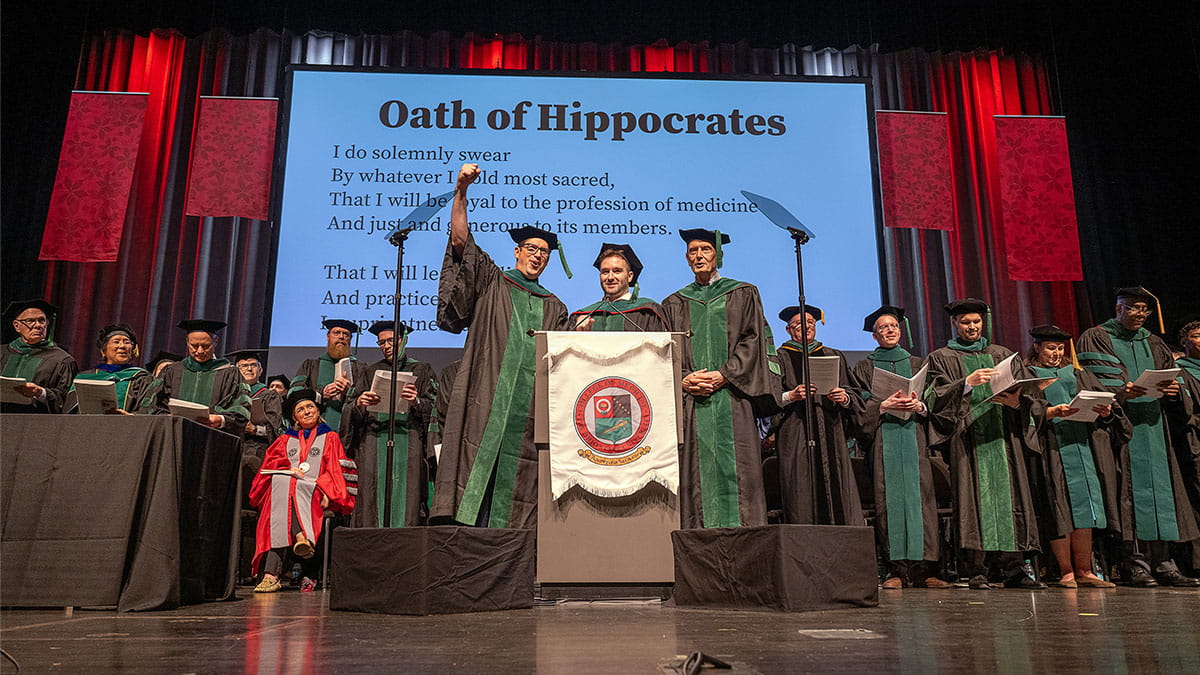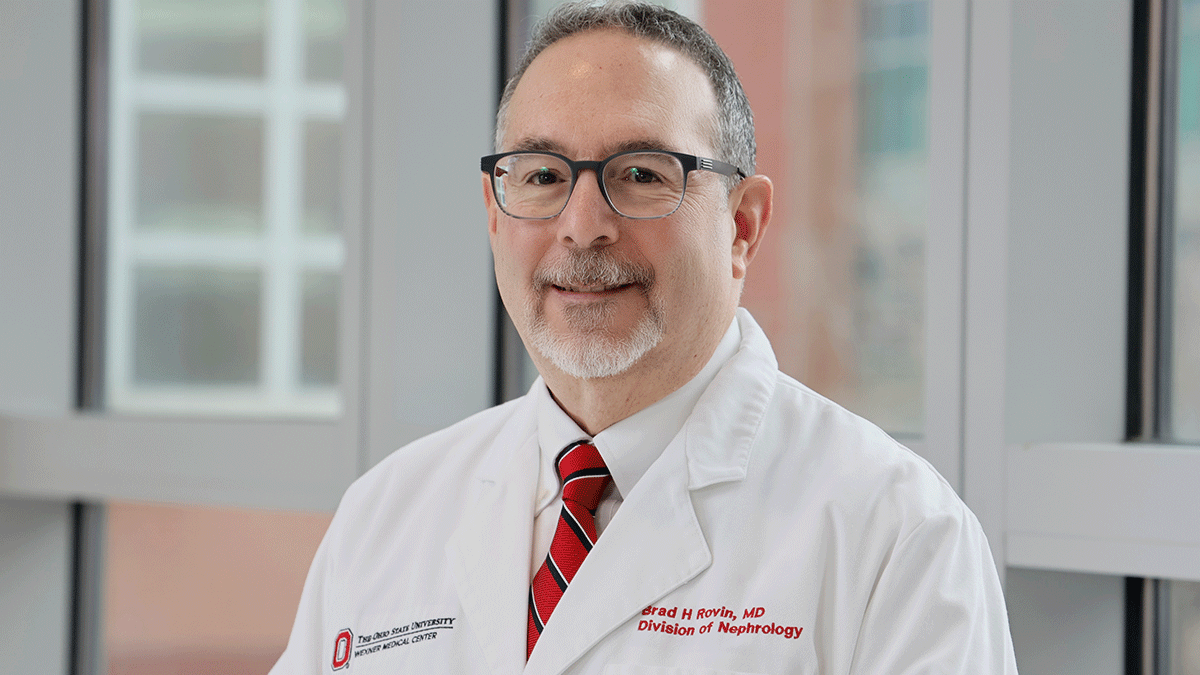Sara Gombash Lampe, PhD, honored with Foundational Science Educator Award for transformative teaching

For Sara Gombash Lampe, PhD, assistant clinical professor of Neuroscience in The Ohio State University College of Medicine, teaching neuroscience is more than just sharing knowledge — it’s about reimagining how learning happens. This innovative thinking contributed to her receiving the Foundational Science Educator Award at the recent 2025 Dean's Excellence Awards Ceremony. Recognized for her creative and student-centered approach to teaching, Dr. Gombash Lampe has reshaped how neuroscience is taught and experienced.
Originally intending to work as a researcher, Dr. Gombash Lampe transitioned into education later in her career, driven by what she describes as “an intuitive sense that I belonged in the educational space and the profound joy I experience when working with students.”
One of her most notable contributions is the redesign of the History of Neuroscience and Neurological Disease course that moves beyond traditional lectures to incorporate reflective journaling, peer instruction and storytelling. She believes this new approach moves beyond traditional content delivery and creates a more integrated learning experience that connects neuroscience to students' lived experiences.
“It allows students to understand neuroscience holistically, helping them recognize how neuroscience principles shape the everyday world,” Dr. Gombash Lampe says.
Among the most innovative aspects of this curriculum is the implementation of digital neuroscience history mini-museums. She developed these interactive, student-designed assessment exhibits to address a fundamental tension in neuroscience education: how scientific discovery thrives on curiosity and creativity, but traditional coursework often prioritizes content mastery over exploratory learning due to curriculum or timing constraints.
“These mini-museums allow students to create interactive exhibits communicating complex concepts through curiosity and creativity,” she says. “This allows learners to explore topics that interest them while developing skills essential for their future careers.”
Many of these projects have been adapted as permanent teaching tools for future cohorts, reinforcing the value of authentic, student-driven learning. Beyond the classroom, Dr. Gombash Lampe has spearheaded the development of a new Graduate Certificate in Neuroscience, one of only four online certificates offered through the College of Medicine. She also plays a key role in several other educational initiatives in the Department of Neuroscience, including the Explorations in Neuroscience Internship Program for high school students, which is funded by the National Institutes of Health (NIH), and an NIH-funded Experimental Rigor training grant.
“Receiving this award has been profoundly meaningful to my career — not just as recognition, but as a tremendous boost of confidence in the value and impact of my work,” she says of the Foundational Science Educator Award.
She also encourages faculty and staff to nominate their colleagues for future awards.
“A nomination is an investment in our institution’s educational culture,” she says. “Each nomination can reveal work that deserves broader recognition and can validate approaches that might feel unconventional or risky.”
Like the work of many others in the college, Dr. Gombash Lampe's work exemplifies the college’s commitment to advancing education through bold ideas, interdisciplinary collaboration and learner-focused experiences.



